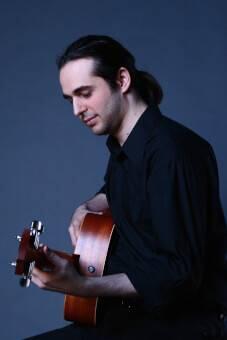
I’ve been a full-time music school teacher for over 22 years. I started young, so there’s plenty of gas still left in this sports car. There are many, many kinds of students out there. Some want to be great, others are simply hobbyists just enjoying the experience.
Some students are visual learners, others great readers. Some are strong with theory, while others think of music theory as their high school Calculus final exam. As a teacher, you realize that you are forever a student. You never stop learning.
With each student comes a new challenge. Even after 22 years and a roster of approximately 40 students I’ve discovered a student or two who has brought something new to the table. The same old tricks don’t work for every student, which is why the American common core system doesn’t work. Having the freedom to customize the experience for each student is one of the main things that keeps private teachers successful. We understand that each student is different.
With that said, there’s one particular thing that must exist for successful teaching: A curriculum.
There are hobbyist guitarists out there just looking for some extra cash on the side so they “give lessons” for pocket money. That’s fine and dandy. As a full-time teacher in a school, however, the game is very different. If you want to make full-time, top-dollar you have to have something to bring to the table. Sure, it helps to be a great guitarist. Yes, you should know what you’re talking about. Don’t show up saying, “Well, put your fingers like this and it’s … like a chord or something. Nice, right?” A degree helps, but I’ve seen teachers with degrees, multiple degrees in fact, who still haven’t much of a curriculum to work with. The bottom line is, we need to have structure and goals.
Some teachers have a series of books that they rely on. I do, too. Books are great, but they do come with their limitations. Limitations are brick walls in the middle of the educational superhighway. Bruce Lee encouraged his students to study all arts, not just one. Boxing doesn’t allow kicking, wrestling doesn’t allow punching, etc. You have to have a bookshelf full of avenues for learning. One book, or one book series, just won’t cut the mustard.
I’ve used the FJH Young Beginner guitar series for my younger students, most often elementary school age. For older students, I’ve dabbled in the Hal•Leonard Guitar Method series. Whatever series you choose, I think we can all agree they have their limitations. Some books focus too much on chords and not enough on scales, others vice versa. And those bloody song choices!!! They are always 200-year-old outdated things that dodge our strict copyright laws. The students aren’t gaga over the music whatsoever. This is the reason many teachers don’t bother with the books at all and just show students the basics and their teacher’s favorite guitar riffs.
Books. Riffs. Songs. What do all of these things have in common?
Two things:
1. We need all of them to learn.
2. They are all limited on their own.
My point is, we NEED a thorough curriculum. The challenge? How does one find the right curriculum for the right student? My students range from ages 5 to adult. I won’t say how old the adults are, but I’ve taught students up to age 60. True story! That age range comes with a multitude of differences in maturity, cognitive ability, physical ability, musical tastes, schedules, etc.
The best curriculum is loose and customizable.
We need the freedom to tweak the curriculum to the student to work with their individual strengths and weaknesses.
Over the years, I’ve worked very hard on my own curriculum. What I’ve found and designed is a curriculum that includes both published method books and about 1000 pages of personally designed PDF files that I use for my students. Do I have a curriculum? Yes, and no. I have a very large, complete curriculum which includes scales, chords, songs, theory, worksheets, method books, etc. I teach students to read notation, tablature, and chord diagrams. I even include the internet version of chord diagrams:
A Major = x 0 2 2 2 0
Even still, my complete curriculum is tweaked to the student.
For example, little Josh comes in, he’s about 10 years old and lazier than an old sheepdog. He is only passing math in school with the aid of a tutor. I’d give Josh a beginner method book and nothing more until he’s willing to practice. Does he progress from page to page? Nope. I don’t mind torturing the li’l guy with the same lesson again and again until he gets it right. Those are the breaks, kid.
Then we have little Aradhana. She’s about 10 years old and she loves music so much she can’t get enough. She explores and experiments with her guitar, discovering new things on her own. For her, I start with a method book and include fun songs on the side like children’s songs, Disney songs, and other familiar theme music. When she gets older, she’ll progress to the intermediate level.
Then we have Joey, he’s an intermediate who’s been working hard for about 4 years now. He’s learning his first scales, I most often start with the minor pentatonic scale and it’s various positions/forms around the fretboard. He’s learned a foundation of all of the natural major and minor chords, not just the popular ones. Whether he sees them or not at this level, he must learn to play B major, F minor, and G minor. All major and minor chords A-G should be explored. Then we have some basic theory. Joey is doing great in math, so theory is a breeze for this kid. He loves it.
Then we have Dave, he’s 40 years old, a hobbyist, brilliant with numbers due to his line of work, and has no intention of being a rock star. He already knows his basic open chords and barre chords, but his fingers don’t lend themselves to flying through scales at blazing speed. He prefers to be a rhythm player. For Dave, we focus more on theory, rhythm, fingerstyle techniques, chord-melody, etc. Unlike my younger students, I feel it’s best for Dave to give me a list of the songs and artists he’s most interested in learning. Don’t get me wrong, I open that door for younger students, too, but the younger ones don’t often have favorites until they get older. With today’s new music, I’m finding less and less out there that young students can use to learn guitar. Guitar heroes aren’t as prevalent as they used to be. Dave, however, is into everyone from Clapton to Tremonti.
Next comes Sally. She’s a divorced mother of two children. They are grown up now, and Sally is about 50 years old. She just wants a hobby and she loves music. She learned piano as a kid, but can’t remember more than three songs like Für Elise, Ode To Joy, and Twinkle Twinkle Little Star. Sally taught herself to play basic guitar and she has been noodling with the same chords for about 25 years. She sounds great, and she even likes to sing sometimes. She’s expressed that she doesn’t really have time to practice and probably won’t get any better than she already is currently. She plays acoustic guitar and she has no desire to be a lead-guitar-god anytime soon. She understands everything she learns, but she won’t be interested in working on one song for three months until the song reaches perfection. For Sally, the ideal curriculum is to sit and learn something new every week. New theory, new chords, chord structure, scales and scale theory, etc. She’s just in it for the right. Song examples are better suited for her than an actual song from start to finish with the intention of mastery.
There you have it. Every student is completely different. There is no one curriculum. However, there must be A CURRICULUM in order to succeed. I print songs, worksheets, theory, etc. and I use tools like Guitar Pro to create concise sheets. I prefer everything to look like it came from the same source, Guitar Pro allows me to make all worksheets and supplementary material look the same. The fonts, layouts, etc. are uniform.
If all of the students are so different, why does it matter to have a curriculum? Why not just wing it? Well, for what it’s worth we’re always winging it until we know exactly what the student can and cannot handle. We have to study them to learn about their needs – their strengths and weaknesses must be found. Then, we MUST set goals. That’s what a curriculum does, it sets goals. We see a light at the end of the tunnel, and with a good system, there can be many mini-tunnels to provide goals everywhere. For instance, this week’s goal can be mastering power chords (locating and playing thoroughly) or perfect the intro of that song the student just started. Goals don’t have to be big, you see, they just have to exist. While the average class is weekly, goals don’t necessarily have to be week to week. We just need to have them. Recitals are great for goals, too. Any performance is, they force the student to work harder.
A good steady curriculum with chapters and clear categories will make the student feel like they are succeeding rather than floating through a very large body of water with no sign of land.
I’ve been working on an official method book series for myself. It’s safe to say that the 22 years I’ve been in the business has contributed to the design of the books, but I have honestly been working on them now for the last 2 years. I plan on completing them and utilizing them alongside the already existing method books, songs, and other things that I teach. Perhaps in time my own books will replace the publications out there and bring in more personal money, too. That’s our goal, really, teachers are working and we need to make money. Our business is educating, our product is knowledge – and in this case, music.
So remember, if you’re a private teacher have a curriculum ready. I strongly recommend it. Your student roster will stick around longer and you’ll come with a great recommendation when future students arrive. Being organized is more than just something we do at home. Organization leads to success in many cases.
More from Niko Lalangas @ The Blogging Musician

Leave a Reply